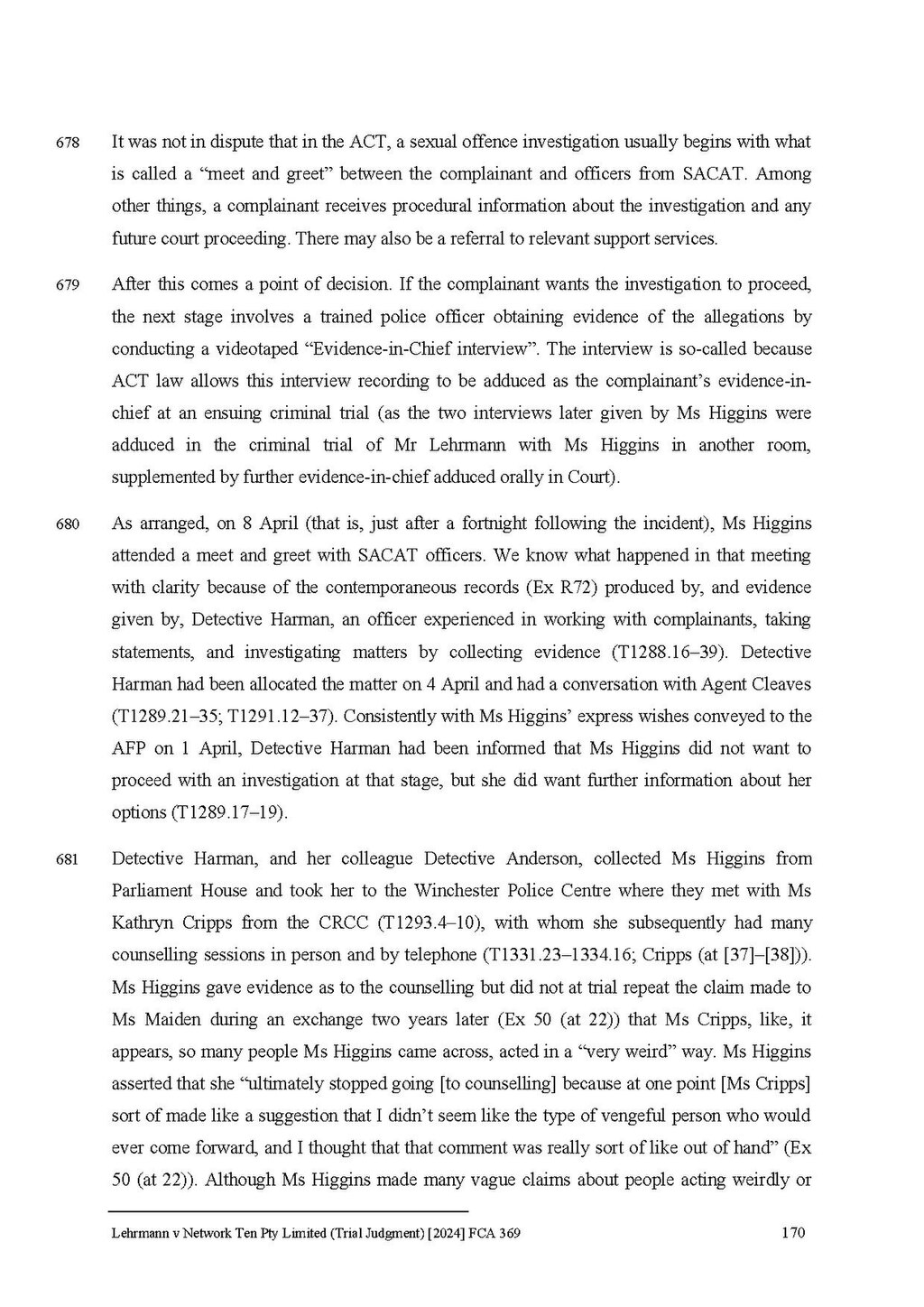678 It was not in dispute that in the ACT, a sexual offence investigation usually begins with what is called a "meet and greet" between the complainant and officers from SACAT. Among other things, a complainant receives procedural information about the investigation and any future court proceeding. There may also be a referral to relevant support services.
679 After this comes a point of decision. If the complainant wants the investigation to proceed, the next stage involves a trained police officer obtaining evidence of the allegations by conducting a videotaped "Evidence-in-Chief interview". The interview is so-called because ACT law allows this interview recording to be adduced as the complainant's evidence-in-chief at an ensuing criminal trial (as the two interviews later given by Ms Higgins were adduced in the criminal trial of Mr Lehrmann with Ms Higgins in another room, supplemented by further evidence-in-chief adduced orally in Court).
680 As arranged, on 8 April (that is, just after a fortnight following the incident), Ms Higgins attended a meet and greet with SACAT officers. We know what happened in that meeting with clarity because of the contemporaneous records (Ex R72) produced by, and evidence given by, Detective Harman, an officer experienced in working with complainants, taking statements, and investigating matters by collecting evidence (T1288.16–39). Detective Harman had been allocated the matter on 4 April and had a conversation with Agent Cleaves (T1289.21–35; T1291.12–37). Consistently with Ms Higgins' express wishes conveyed to the AFP on 1 April, Detective Harman had been informed that Ms Higgins did not want to proceed with an investigation at that stage, but she did want further information about her options (T1289.17–19).
681 Detective Harman, and her colleague Detective Anderson, collected Ms Higgins from Parliament House and took her to the Winchester Police Centre where they met with Ms Kathryn Cripps from the CRCC (T1293.4–10), with whom she subsequently had many counselling sessions in person and by telephone (T1331.23–1334.16; Cripps (at [37]–[38])). Ms Higgins gave evidence as to the counselling but did not at trial repeat the claim made to Ms Maiden during an exchange two years later (Ex 50 (at 22)) that Ms Cripps, like, it appears, so many people Ms Higgins came across, acted in a "very weird" way. Ms Higgins asserted that she "ultimately stopped going [to counselling] because at one point [Ms Cripps] sort of made like a suggestion that I didn't seem like the type of vengeful person who would ever come forward, and I thought that that comment was really sort of like out of hand" (Ex 50 (at 22)). Although Ms Higgins made many vague claims about people acting weirdly or
